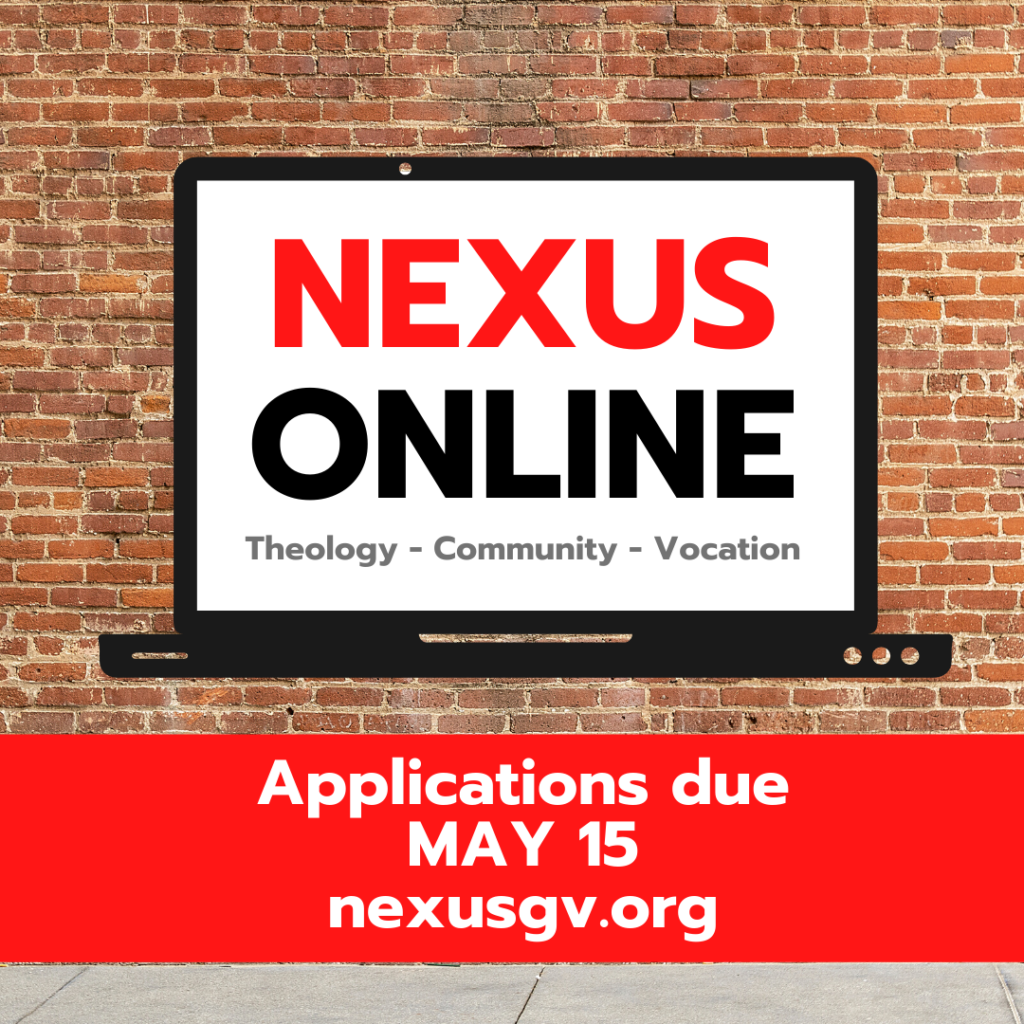Life Was Not All It Could Be
“Well, I do watch a lot of YouTube videos.” The twenty-something young man sitting in my office said it to me with an air of pride — even conceit. We had spent the last two hours playing question and answer. He had asked me to make time in my day to talk with him personally after he had been away from the church since his confirmation, and I was only too happy to do it; pastors don’t typically get into this line of work because we have a burning passion for paperwork. It was clear from his slouched demeanor, unkempt dress, and his father’s concern for his persistent depression and “failure to launch,” which had prompted him to call me, that life was not all it could be for him.
I was concerned for him. I was happy to answer his questions, but it had become apparent after two hours of doing so that he was not genuinely seeking answers; for when I gave them or offered resources that might help him think through a question, he immediately moved on to ask a different question, seeming to hope that this would be the one that forced me to affirm without reservation the ideas he had gleaned from that modern day Oracle of Delphi, Google. He didn’t come seeking wisdom or even new data; he came seeking a reason to not change the very points of view that were giving birth to the misery that had prompted him to call me in the first place.
I began life as a youth minister. Four of the best years of my life were spent ministering to and with the youth of Zion Lutheran Church in Ann Arbor, Michigan. I not only loved that time in my life, but I continue to have such an abiding passion for youth that even when I was the senior pastor of a church and could partially define my own job description, I chose to make work with our high school students one of my primary responsibilities. Youth is a time when we make choices whose consequences shape our future in ways we can only guess at, but equally, it is a time when we can shift our convictions more easily than in later life, when we have so much more invested in the trajectory we are already on.
So momentous are the choices we make in our youth, we cannot guess at the significance we will attribute to them in later life. Whether and who we should date and/or marry, what kind of work will make up the bulk of our waking hours, how we will spend our time, money and effort, and what kind of mark we will make on the world — at least, our little corner of it — are all things that properly consume our energy and attention at this time of life.
All those aspects of life — and many more — are areas about which our convictions about ultimate things have something to say. They are things about which the Bible in general has a great deal to say and Jesus, in particular, has even more. During my conversation with the young man I mentioned above, he made rudimentary mistakes about the very Biblical stories about which he was questioning me, and his mistakes in reasoning were even worse; yet clearly, he considered himself something of a great thinker — the intellectual equivalent of the classic self-made-man.
Enough to Be Dangerous
Now, the truth is, I deeply respect such people when they are people of genuine skill and achievement. They often bring a necessary outsider’s insight to intractable problems in their field and are catalysts for true change. But Google and its internet ilk can give us the impression that we have achieved such status when, in fact, we have simply acquired just enough knowledge to be dangerous.
The sources of information on the internet are provided to you free of cost simply because the advertisers on the pages you frequent pick up the tab. They pay for a presence on these pages, not because they hope that you will be someone interested in their product in the same way as a billboard advertiser, whose advertising is equally available to people of every persuasion in the cars that pass their location, but rather because your search history has indicated that you are likely — perhaps very likely — to be interested in their product. You are what salespeople called a “qualified prospect.”
Sold
Your search history will also direct you toward resources that are “themed” along the lines of inquiry you are already pursuing and unlikely to challenge your established convictions. Why? Because you will likely linger longer on those pages and be exposed to the advertising that drives the monetary engine of the internet. To put it bluntly, the advertisers are not simply trying to sell you a product, the pages you visit are selling you — your eyes — to the advertisers. You are the product being sold on the internet.
Serious Research
What all this means is that the internet is a lousy tool for doing serious research into an important topic. You will not be exposed to the best contrarian arguments on any topic, and your natural human propensity toward confirmation bias (our tendency to not question data that affirms our current beliefs and discount data that would challenge them) will not be healthfully challenged, for that might interrupt the predictable flow of money.
By its very structure, the internet is antithetical to a serious search for the truth… and since the most important matters of our life are at stake in our choice of faith (and its attendant worldview), let alone potentially something as significant as eternal life, we can and should take the quest for religious truth seriously.
One recent trend on the internet has been celebrity “faith deconstructions.” In these personal pieces, public personalities share their often profoundly touching reasons for leaving the Christian faith in which they were raised. Many of these include somewhat detailed recounting of their intellectual journeys out of the faith, quoting scholars and/or former pastors and Christian leaders like Bart Ehrman, Rob Bell, and Bart Campolo. The problem is that they don’t often seem familiar with the most intelligent responses to and questions of their positions, and those watching their testimonies will not be helped to find them by the internet. Besides, despite the historic use of personal, emotional testimony by some Christian groups, our sympathetic response to a charismatic person is not a reliable means of evaluating truth.
Do This
You deserve better, and you couldn’t have more motivation to provide yourself with better. Seek wise counsel, read good, substantive books, take the quest for truth — and yourself — seriously, and finally, do one more thing: spend time talking to God in worship. The late Tom Hopko, Dean of St. Vladimir’s Seminary and priest for 50+ years, reflected on the inestimable importance of the question of God and religious truth, saying, “If you’re not sure, you stand in worship, listen, think, and address your prayers, ‘to Whom it may concern, if you’re there.’” He had recently been informed that his grandson, named for him, had at seventeen years old declared himself an atheist.
His Truth Will Make a Difference
As a young person, you live in a world dominated by memes and internet trends. It is unlikely that you will live your life without a serious challenge to the faith that the people around you have worked so hard to pass on to you and which I hope you have embraced deeply. When that challenge happens, or even better, now, before the challenge comes, take yourself — and more importantly, Jesus — seriously. He said of Himself, “I am the way, the truth, and the life,” and His truth will make a difference in the way you live your life.








 The very real conversations today in this country and around the globe about the perceived lack of value of a life lived with disability is disturbing to say the least. The abortion rate of babies prenatally diagnosed with disability is terribly high. The arguments about being a burden to family and therefore withholding medical treatment or withdrawing life sustaining measures are becoming louder. The incidence of courts valuing the family’s right to define the value or quality of life of someone very much alive are agonizing to watch. So where do we begin? Scripture of course.
The very real conversations today in this country and around the globe about the perceived lack of value of a life lived with disability is disturbing to say the least. The abortion rate of babies prenatally diagnosed with disability is terribly high. The arguments about being a burden to family and therefore withholding medical treatment or withdrawing life sustaining measures are becoming louder. The incidence of courts valuing the family’s right to define the value or quality of life of someone very much alive are agonizing to watch. So where do we begin? Scripture of course.






